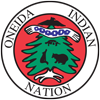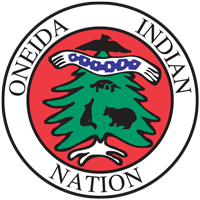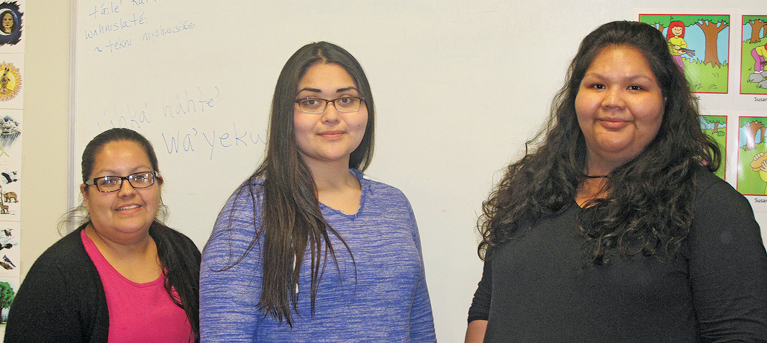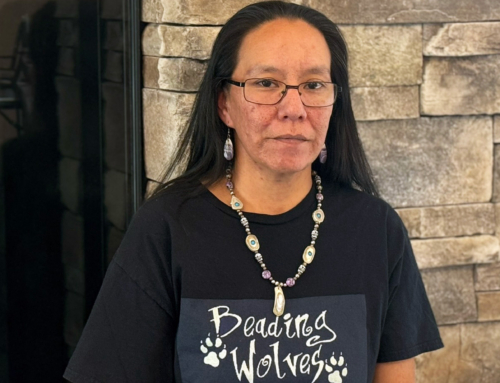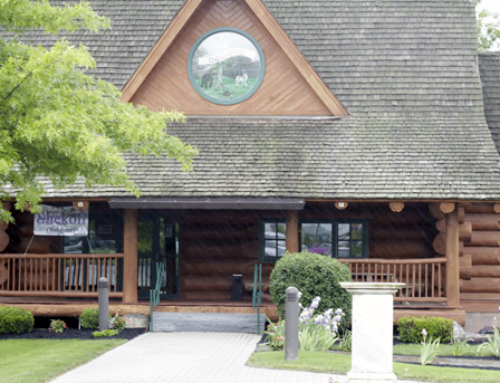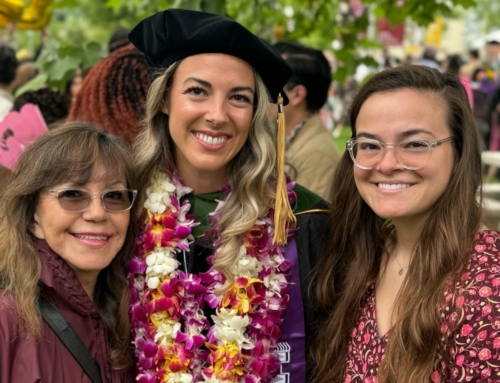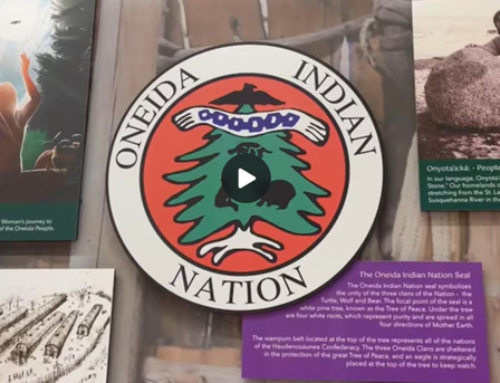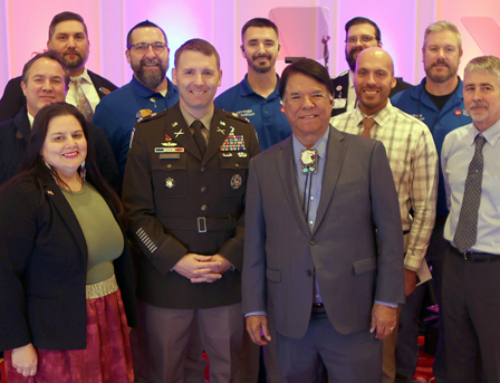Fresh off its move to the building that previously housed Oneida Indian Nation Health Services, the Oneida Indian Nation Language Department looks to continue building on its language preservation and education programs. Led by its primary instructor, Mary Blau (Turtle Clan), the department is excited to reach and interact with the Nation’s youth.
The program currently enrolls three Nation Members: Chelsea Jocko (Wolf Clan), Clairese Patterson (Wolf Clan) and Karen Pierce (Turtle Clan). All of whom have been in the program for over five years and are eager to pass down what they’ve learned to the next generation.
“I want to learn my language and be able to teach my kids,” says Patterson. “I like the challenge, but you have to use it every day or you’ll lose it.”
Providing the groundwork to effectively and practically teach the language is the main goal for the department. That would enable anybody to learn the language and that is how the program plans to advance into the future.
With the direction of Nation leadership, Blau and the language program participants are adding phonetics to all written materials used to teach new words and phrases.
“We are amending children’s books with the Oneida word and a phonetic spelling,” Blau says. “There aren’t many people that are proficient in writing [in Oneida] so it’s important to add phonetic spelling so progress isn’t lost in the years to come.”
Simple phrases in English are often more complex and descriptive in Oneida, which makes it difficult for new learners to pick the language up quickly. That is why the department is targeting the younger generation.
Kids pick it up quicker than adults because they are able to connect the pictures in books with the proper pronunciation. Adding phonetics will make it easier for everyone to remember the pronunciation and provide a written record of how to pronounce each word or phrase.
The Oneida language can be challenging. It’s a lot of work to keep that piece of culture alive, but Karen Pierce loves working with the younger children. “There could be 15 different ways to change one word so it’s easier when you have someone that can participate with you.”
Blau’s current project is maintaining the production of an annual calendar to distribute to Nation Members. The calendars are made in collaboration with Madison-Oneida BOCES (MOBOCES) and contain a common phrase, a common action, a kid-friendly food or drink and an animal for each month of the year. The words will be written underneath the images in English and Oneida with a phonetic spelling for each.
The calendars will provide an easier introduction for Members and their children to attempt reading and saying new words. “BOCES gives us great ideas on how to reach and work with children,” Blau says. “We all attended workshops on how to work with toddlers and the younger kids.”
Using video to record and archive presentations made by fluent speakers is also a high priority. The department has access to three fluent speakers including Ray George, Olive Elm and James Anton from the Oneida Indian Nation of the Thames. It plans to record them reading in Oneida and English while displaying pictures from the books they are translating.
“It will be more visual and will be archived for years to come,” says Blau.
These critical steps addressing teaching methods and communication will ensure the Oneida language can continue to be passed down. The department looks forward to expanding its teaching resources so they can reach more people, including the kids participating in the Nation’s education programs. Chelsea Jocko believes it’s a worthwhile endeavor: “It’s part of our cultural identity as a Native people. We need to keep it going for the next generation.”
